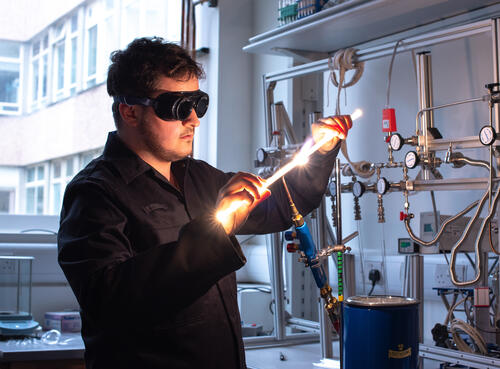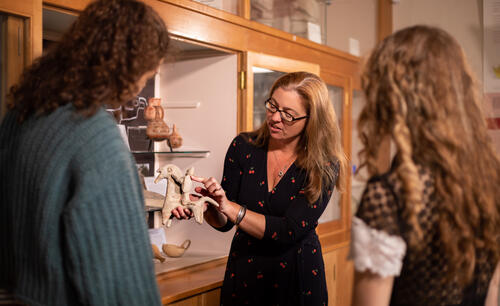This resource describes the frameworks used by UKRI to promote responsible research and impact. It also invites you to ask questions of your projects to ensure that you are maximising impact and engagement opportunities and are responsive to change. Responsibly undertaking research and impact, i.e. “to promote creativity and opportunities for science and innovation that are socially desirable and undertaken in the public interest” (EPSRC web page), is a strategic priority for both UKRI and the University. It is important to imbed these principles at the planning stage of project development.
The research, impacts and innovations at St Andrews are reflective of our culture and values. To this end, we have developed this resource to inform best practice for Responsible Research and Innovation, as detailed by UKRI. We contextualise this information with further questions and calls to action.


AREA Framework Overview
The AREA Framework, developed by UKRI, is designed to make researchers think of the wider implications of their work – both positive and negative. The current framework encourages a reflective and reflexive approach to research and impact. It encourages all involved in research impact to be creative, dynamic and inclusive, while being responsive to change. The components of the AREA Framework are outlined below, along with some potential thinking points for each element. In combination, these elements sustain an environment of an accountable and responsible research and impact culture. By using AREA as a planning tool, researchers can imbed responsible research and impact principles into their work. Begin by thinking through each aspect of AREA and ask yourself how your project may respond to the resultant questions.
Anticipate
“Describe and analyse the impacts, intended or otherwise, that might arise. Do not seek to predict but rather support the exploration of possible impacts (such as economic, social and environmental) and implications that may otherwise remain uncovered and little discussed.”
Questions to ask:
– What is the impact POTENTIAL and how might this be explored?
– Could there be any potentially NEGATIVE outcomes of conducting the work?
– Are there NASCENT engagement or impact directions which could evolve benefits further?
Reflect
“Reflect on the purposes of, motivations for and potential implications of the research, together with the associated uncertainties, areas of ignorance, assumptions, framings, questions, dilemmas and social transformations these may bring.“
Questions to ask:
– What are potential CONSEQUENCES of your research/impact (social, environmental, financial, ethical etc)?
– How can you build RESILIENCE into your project and ensure its motivations are sound?
– What are areas of UNCERTAINTY associated with the work?
Engage
“Open up such visions, impacts and questioning to broader deliberation, dialogue, engagement and debate in an inclusive way.”
Questions to ask:
– Have you fully considered your impact AUDIENCE or USERS and how to best engage with them?
– Have you expanded your view of the potential BENEFACTORS, minimising barriers to impact and working inclusively?
Act
“Use these processes to influence the direction and trajectory of the research and innovation process itself.”
Actions to take:
– Plan in a way that is ADAPTIVE and FEASIBLE, remaining open to new directions for the research and impact.
– Identify potential BARRIERS for an audience, for industry, to accessibility, etc. What can be doen to break down these barriers, or what steps can be taken to minimise their effects?
– Periodically REVIEW and REFLECT on the project to seek out potential flaws, opportunities, or uninteded consequences. Are there actions that could alter the course, advance possibilities or make improvements?
Next steps:
Now that you have scoped the potential AREA responses in the context of your research/impact, make alterations where necessary and revisit the framework. If you do not have responses to some of these elements, or see them as inapplicable, account for why this may be.
If you have follow-up questions or need further support, please contact the Research Impact team ([email protected]) or the Head of Engagement with Research ([email protected]).
